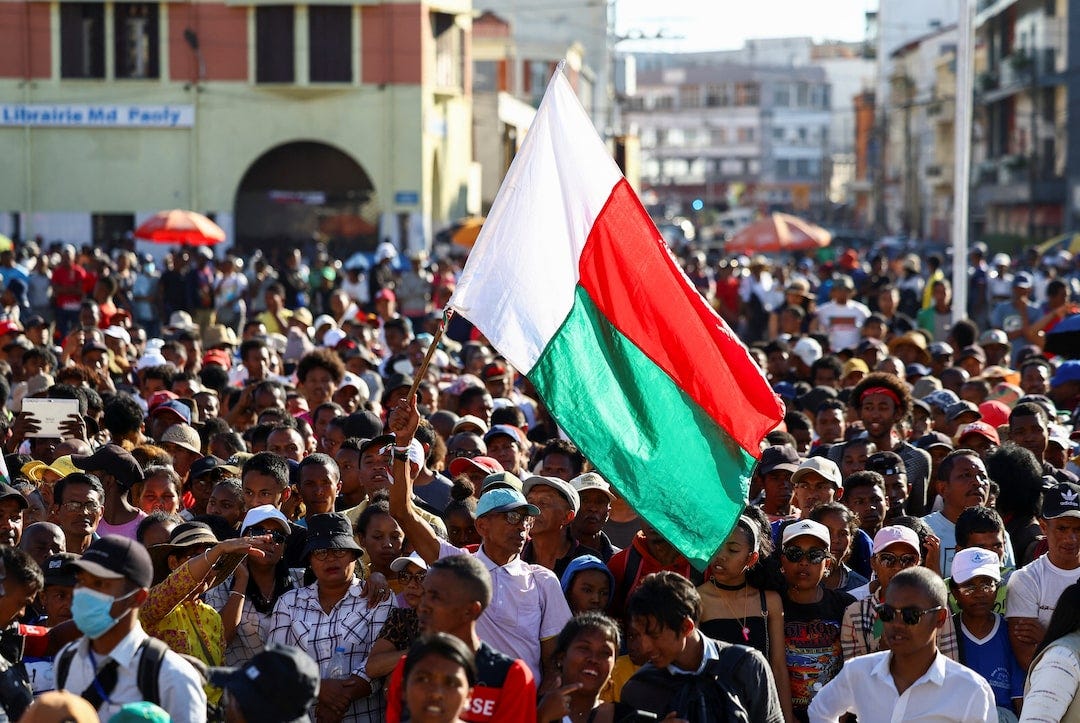The Digital Crucible and How Connected Youth Forge a New Global Uprising?
Let’s talk about how digital connections are empowering young people globally to challenge and transform seemingly unshakeable power structures, using Madagascar as a potent, immediate example.
When the Seemingly Immutable Crumbles
I’ve been thinking a lot about the news from Madagascar – the president fleeing, the parliament dissolved, all sparked by Gen Z-led protests. It feels like a moment, doesn’t it? For so long, many governments, especially those with a tight grip, have operated under this grand illusion of being unshakeable. They control the narrative, limit information, and use the sheer weight of tradition to maintain power. But what we’re seeing, in Madagascar and places like Nepal and Bangladesh, is that this illusion is crumbling. It’s a terrifying yet exhilarating sign of our times, revealing just how fragile even the most entrenched power can be when confronted by a determined, connected generation.
The Networked Generation’s Leverage
So, what’s different now? It’s us. It’s this generation that grew up online. We are digital natives, and that changes everything. Social media, encrypted chats, instant news – these aren’t just tools for entertainment; they’re instruments of revolution. What used to take years of dangerous, underground organizing can now happen in a matter of days or even hours. This networked consciousness gives young people an incredible leverage. It means that the old ways of control—censorship, isolation, gaslighting—are becoming less and less effective. This isn’t just a political shift; it’s a fundamental rewiring of how power operates in the 21st century.
The most potent weapon in the hands of the oppressor is the mind of the oppressed.
– Steve Biko
Our minds, collectively connected, are proving to be quite potent indeed.
What Madagascar Teaches Us
Madagascar isn’t just a headline from a far-off place; it’s a mirror reflecting a global truth. It shows us that any regime, regardless of how stable it appears, that ignores the demands of its youngest citizens does so at its peril. This generation, often burdened by economic uncertainty and armed with the sharp lens of digital transparency, sees through corruption and inequality with a clarity previous generations couldn’t. Their protests aren’t just about economic woes; they’re about a profound dissatisfaction with governance that feels outdated, unresponsive, and fundamentally unjust. The stakes are existential for these countries, and perhaps, for all of us.
Go Deeper
Step beyond the surface. Unlock The Third Citizen’s full library of deep guides and frameworks — now with 10% off the annual plan for new members.
Our Collective Reckoning
The currents of change are strong, and they’re not slowing down. This global youth uprising is a synthesis of digital possibility and raw, generational yearning for something better. Václav Havel, in his writings on the ‘power of the powerless,’ spoke of the corrosive nature of living within a lie and the eventual emergence of truth. We are seeing that truth emerge with unprecedented speed. What does this mean for us, in our own societies? It means we must pay attention. We must understand that the challenges faced by young people in Madagascar, Nepal, or Bangladesh are not isolated. They are part of a larger, urgent conversation about the future of freedom, democracy, and how societies will govern themselves in an interconnected world. We have a choice: adapt and listen, or risk being swept away by the inevitable tide.
Every generation imagines itself to be more intelligent than the one that went before it, and wiser than the one that comes after it.
– George Orwell
Perhaps this generation’s intelligence lies in its collective, digital wisdom.



